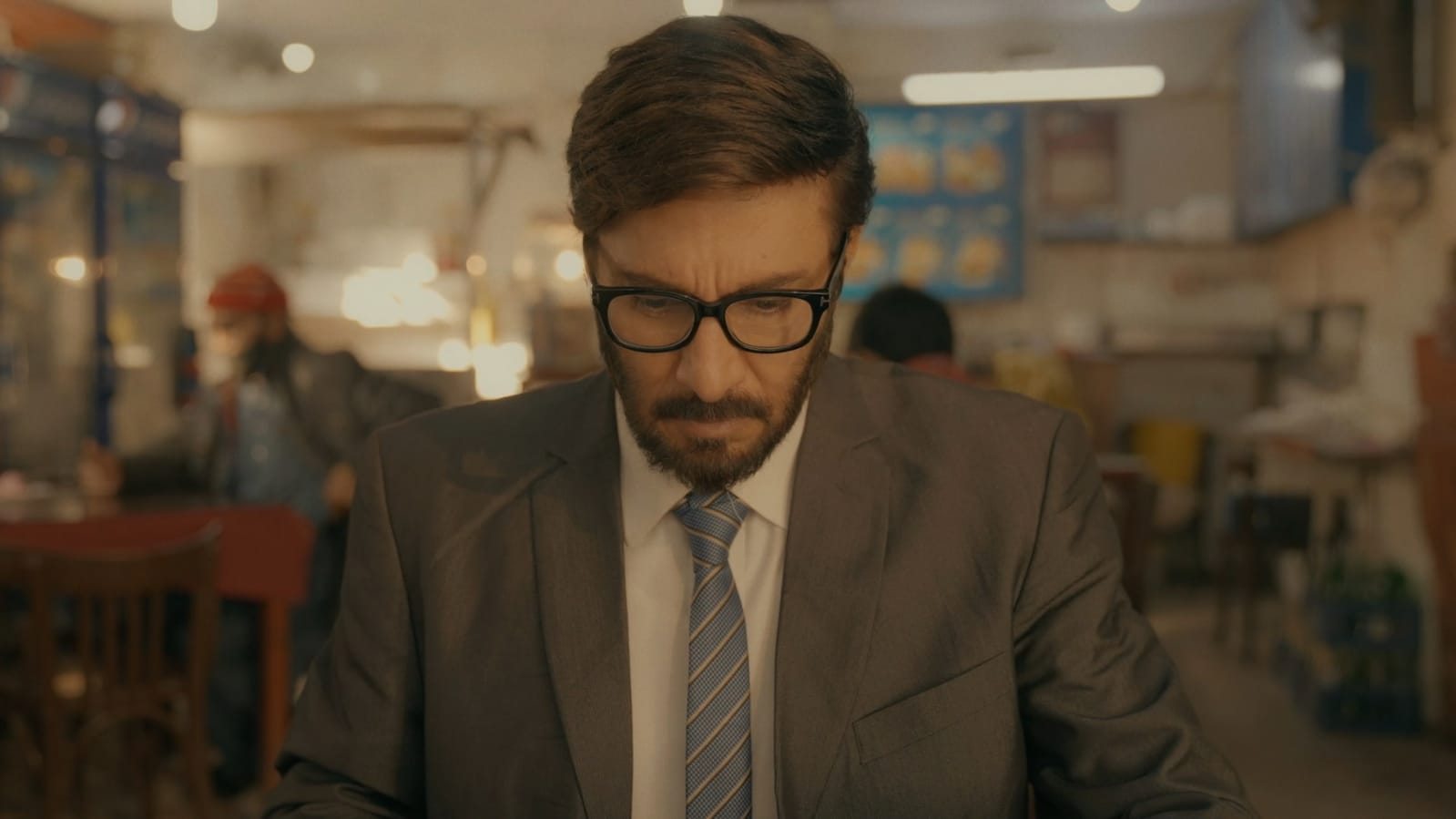KARACHI: Premiering on Aaj Entertainment at 9 PM, Saturday, August 7, 2021, with a repeat telecast Sunday, 3 PM, August 8, 2021, Future Imperfect may be all that a filmmaker in Pakistan sets out to achieve within a limited budget. A stellar cast, a genre not treaded much into, and a story that takes an unexpected route to storytelling are just some of the many things that make Future Imperfect stand out.
Judging by the trailer, the upcoming telefilm explores multiple time travel paradoxes, such as the Bootstrap Paradox, the Grandfather Paradox, Fermi Paradox, and the Newcomb Paradox. To understand further, here is a brief breakdown of what all these paradoxes mean:
The Bootstrap Paradox implies that an event in the future is caused by an event in the past, however, an event in the past could also be caused by an event in the future. Both events from the past and the future exist in spacetime, however, the origin event out of the two could never be determined. Hence one cannot tell whether Aijaz Aslam’s future version sending him clues, or Aijaz Aslam in the past receiving those clues is the origin event. During the trailer, a voice-over from the actor says, “Welcome to the first day, of the rest of your life”. What makes that day his first day is what is yet to unfold.

The Grandfather Paradox assumes you travel to your past to change something in the future (your present), but can you? Let’s say you travel back in time to kill your grandfather. As a result, your father is not born, and later you are not born, which in turn prevents you from traveling back in time to kill your grandfather. According to this paradox, a time-traveling to the past is meant to cause things he causes for his future to be the way it is. He cannot change the past and can only do things that have happened. What is it that Aijaz Aslam’s future self is trying to change in his past? Does he succeed, or will his messages from the future only cause the event because unbeknownst to him his time travel was simply a plot point meant to fulfill what is required for that event to happen?

The Fermi Paradox poses the question that if time travel is possible in the future, why have we not had visitors yet? To explore this, the telefilm looks at messages from the future that Aslam’s character receives, and whether and how he connects with his future self. Is it even possible to connect two different positions in spacetime? Would it cause a contradiction?

Perhaps one paradox that the telefilm truly sets out to explore is the Newcomb Paradox. If a person travels to the future or meets his future self, he/she becomes the “Perfect Predictor” because he knows exactly what is to happen. How does that person then have free will? Aijaz Aslam stuns as the protagonist for the telefilm, but just how much agency does his character have in the narrative if the end is predestined?
Sci-Fi as a genre has not been explored enough and is definitely not a norm for the Pakistani film industry. However, the director and writer of Future Imperfect, Kamran Jawaid, is not opposed to the idea of formula films at all. He revealed that the project is thoroughly commercial and not an art film that is independent of stakeholders. For most romantic comedies, the formula is always “boy meets girl”. A number of comedies borrow from the Shakesperean structure of comedy i.e., comedy of errors, and till this day, most comedies that stay with us have this very element in them. But why do we like the films that we do like? It is in the way we tell the story that matters. How does the boy meet that girl? How does that comedy build up to the point of unanimous errors towards the end? The answer lies in the treatment.

“Formula films work fine; in fact, cliché and formula – which, contrary to belief are not interchangeable terms – subconsciously create a familiar sense of appeal storytelling-wise for the viewers. The issue is how one uses that cliché and formula to structure the story in an innovative way,” stated Jawaid. “On the other hand, if we’re speaking about genres, yes, each has their own set of formulas – a heist film, or a romantic film, usually have their own set of necessitated particularities. What we need to do is entertain the idea of working in those genres, so that the audience gets some variety to choose from.”

Future Imperfect has mostly been Jawaid’s statement to make. He expressed how he was adamant about proving that such a film can be made, so make it he shall. “From Zaid Aziz, the producer’s point of view, there would be many, I suppose. But, since he also felt that we needed to make a statement by proving we can make this particular film within constraints, I think he just tuned out the part of his brain that was blaring all sorts of warnings at him,” he explained. “Some of those risks would be about getting the film to cinemas or selling it to a network or that many may not want to broadcast a film in this genre. However, from what I understand, the film was approved to go into production after I submitted the concept. So, I guess, as the saying goes: where there’s a will, there’s a way.”

While Kamran Jawaid, who hails as a film critic himself, feels his telefilm depends heavily on exposition. He explains how it is important to propel the story forward if done correctly. “American television is brimming with it. For example: when you see two experts in a lab, or cops explaining things away in a police procedural show (CSI shows, for example), they do it for audiences’ convenience. Nobody talks like that in real life. We already had a somewhat difficult-to-grasp story, so it benefitted from characters spelling things out for audiences’ convenience while the story moves forward.”

Speaking about his cast and crew Jawaid revealed his inspiration behind Future Imperfect is Aijaz Aslam himself. Most of the roles have been tailor-made according to the actors that have been cast. Jawaid added that his cast was pretty diligent, even though many who came from television did not know what they had signed up for because the telefilm had been treated as a cinematic piece rather than a project made for television. It is for this very reason that all the shots are color graded to cinematic perfection, with three-point lighting ensured for every frame.

“He just got the character the moment he read it,” spoke Jawaid complimenting Khalid Anam one of the lead actors. He also added that it may as well sound cliched, but Aijaz Aslam has never been seen in a role such as this one. “The man is a godsend to the entertainment industry, and his sense of physical timing and continuity – not to mention his razor-sharp memory – left me speechless.”

Mashal Khan’s quick attuning to the character, Hassam Khan’s fragility and helplessness in the character he brings to life, and Khalid Zafar pushing the envelope with his acting are some of the many things we are eagerly waiting to see unfold on Saturday.

Here is to wishing the research-oriented Kamran Jawaid all the very best with the premiere and his team a kudos for leading by example for any future projects to come that urge people to explore.














